The importance of peer observation in education
Posted on: March 7, 2023by Ruth Brooks

Peer observation in education is a powerful tool for teacher development. It involves one teacher observing another teacher within their classroom setting with the aim of enhancing their teaching practice, and benefiting both the observed and the observing teacher.
These observations are usually part of a two-way, reciprocal process, with one teacher observing the other, and then switching places, to see differences in student behaviour and student learning, as well as new avenues for good teaching and learning enhancements. These pairings may include experienced teachers observing – or being observed by – teachers who are newer to the profession, but they can also include educators with similar teaching experience levels observing one another to collectively reflect on their teaching practice.
Peer observation is important because it:
- supports teachers’ continuing professional development.
- draws on social cognitive theory, which suggests that people learn when observing others and participating in social environments.
- enables observing teachers to build on their current knowledge base by learning new strategies and applications for pedagogy, and then adapting them within the framework of their own teaching methods and teaching styles.
- allows observee teachers to share and demonstrate their expertise within the context of their classrooms, and gain valuable feedback and ideas.
- promotes reflective practice.
Observation is also credited with increasing teachers’ self-confidence to try new strategies. According to Seeing is Believing: The Benefits of Peer Observation – an article written by educational psychologists Graham D. Hendry and Gary R. Oliver and published in the Journal of University Teaching & Learning Practice – teachers benefit greatly from observing.
“The traditional view of the process also includes an assumption that colleagues can learn effectively from each other’s explicit, constructive feedback about observed teaching. However, evidence is increasingly emerging that learning from watching a colleague teach can be just as beneficial as, if not more than, receiving feedback, even when that feedback is well constructed,” the article states.
“The observer learns about how to perform the practice by seeing it, rather than being told about it, and comes to believe (strengthening their self-efficacy) that they can also teach in this way, and so is motivated to attempt the practice.”
Observation at the institutional level
In the United Kingdom, peer observation is typically conducted solely for the purpose of professional and academic development. While peer observation is likely to be supported by teachers’ institutions – and in many cases, schools take responsibility for facilitating peer reviews – these institutions are not privy to the critical reflections or outcomes of observations.
It’s also worth noting that while the observational frameworks are similar, peer observation is separate to the lesson observations conducted by the Office for Standards in Education (Ofsted) as part of its inspections and evaluations. Through observation, Ofsted assesses the quality of teaching, behaviour, and the curriculum, with different success indicators in each of the three areas, including:
Teaching
- Teachers demonstrate good communication skills.
- Teachers possess good questioning skills.
- Teachers give explicit, detailed, and constructive feedback in class.
Behaviour
- Teachers create supportive classrooms focused on learning.
- Pupils’ behaviour contributes to the focus on learning.
Curriculum
- Teachers use their subject expertise to provide effective learning opportunities.
- The lesson content is appropriate to the age group and does not lower expectations.
- There is a logical sequence to the lesson.
The peer observation process
The peer observation framework will vary between different schools and institutions, but typically includes a few key steps.
- Preparation. A teacher who would like to be observed agrees the preferred focus and purpose of the observation with the observing teacher. For example, if the teacher is trying out some new teaching strategies and wants to have a feedback session about these after putting them into practice, this should be mentioned in the pre-observation stage. They should also choose an observing teacher who is likely to have useful insight or a different perspective about the area of focus, and a format for the observation. For example, will the teacher be working with small groups of learners, or a full classroom of pupils?
- Observation. During the observation session, the observing teacher should write down any comments or feedback they have about the areas of focus discussed during the preparation stage. Typically, the observing teacher won’t participate in the lesson or learning unless this has been agreed in advance.
- Reflection and discussion. The two teachers meet to reflect on the observation, and discuss it together. The post-observation conversation should focus on strengths as well as constructive, practical suggestions for improvements, and only in the area of focus agreed ahead of time. This conversation, as well as any related materials, are kept confidential, and the discussion is free from judgements or unfocused criticisms.
The benefits of peer observation
Peer observation of teaching benefits everyone involved in education settings, from early years education to higher education. This includes:
Teachers
Through peer observation, teachers gain valuable feedback and learn new techniques and methods.
Observed teachers can apply new strategies and get immediate, constructive feedback from their peers, or uncover new ways of approaching challenges or problems by discussing options and ideas with their colleague following observation. Observing teachers, meanwhile, can improve their communication skills, learn new approaches to shared challenges through tutorials from other teachers, and reflect on their own teaching practice.
Through this method of professional learning, teachers also benefit from the positive enforcement that comes with sharing their strengths, teaching skills, and areas of good practice with their colleagues, and discussing these together.
Learners
Peer observation ensures that pupils and students receive effective teaching that better supports their development. They also benefit from an enhanced learning experience and better learning outcomes.
Schools and institutions
Schools and institutions as a whole are strengthened and even transformed by the outcomes of teacher education through peer observation. Teaching staff are more effective, learners are more successful, both feel more supported, and school morale is improved.
Enhance your teaching approach with peer observation
Explore self-reflection and your understanding of peer observation with the 100% online MA Education distance-learning degree from North Wales Management School. This programme has been created specifically for teachers, trainers, tutors, and educational professionals from all backgrounds, and will enable you to reinforce your practical work experience with the theory, tools, and techniques that will help you to achieve career success as an educational practitioner.
One of the key modules on this flexible master’s programme is in mentoring and coaching in education, which fosters a critical understanding of the value of mentoring and coaching in developing and improving professional practice. It explores the importance and purpose of peer observation in learning and teaching and gives you the opportunity to reflect critically on good education practice. It also identifies the potential impacts of raising standards and improving pedagogy, and examines the ability to enhance the quality of learning and teaching through advanced professional activity.





